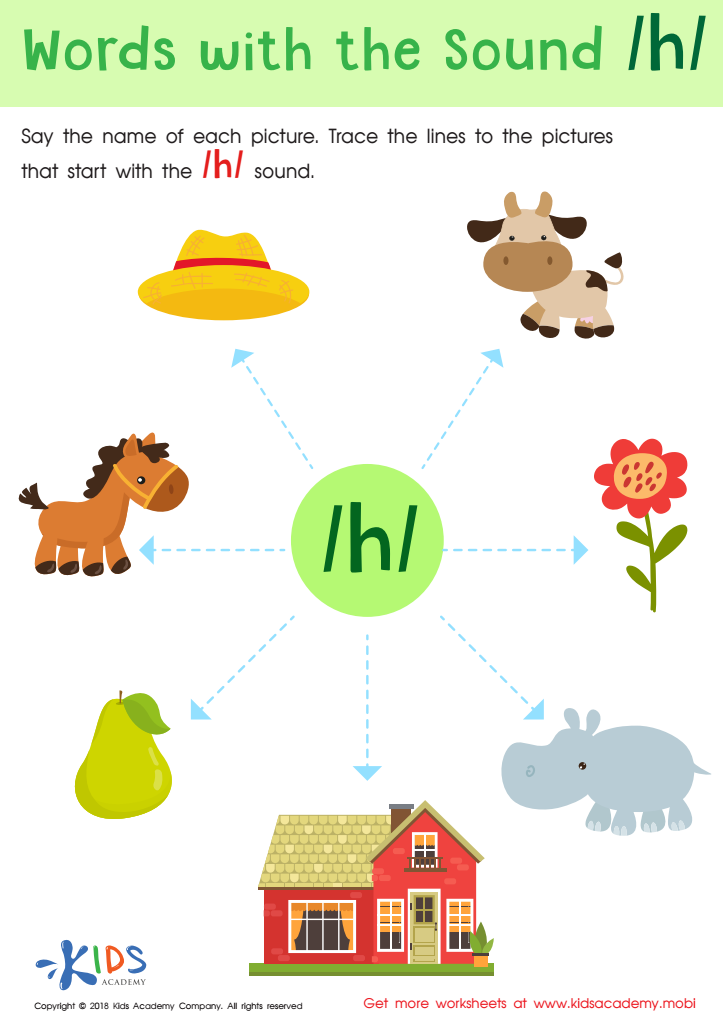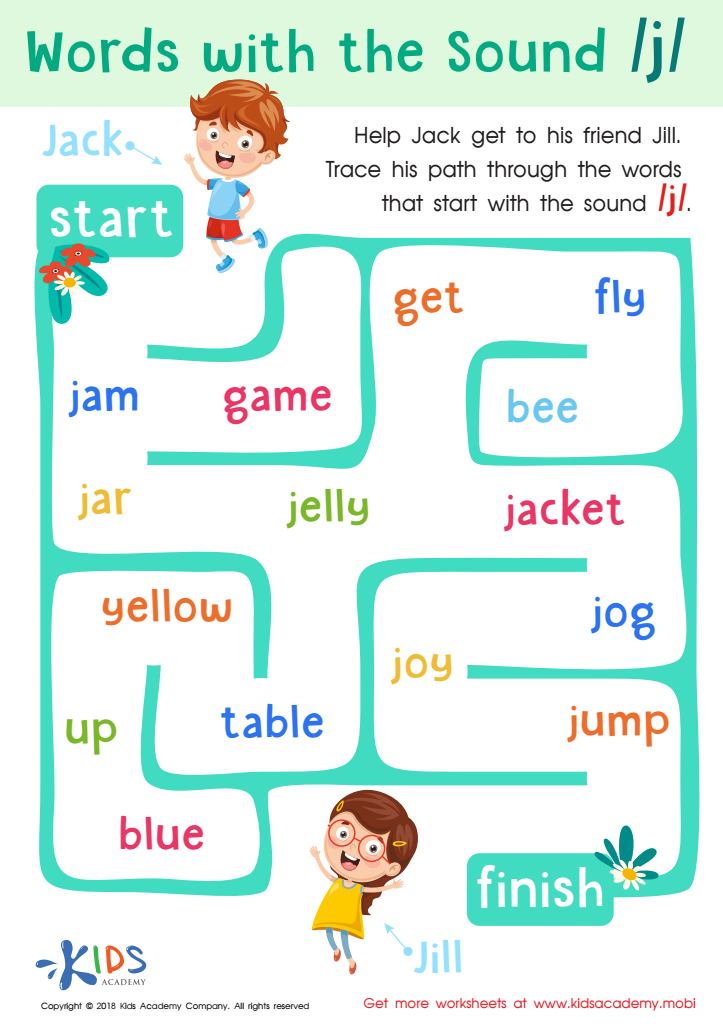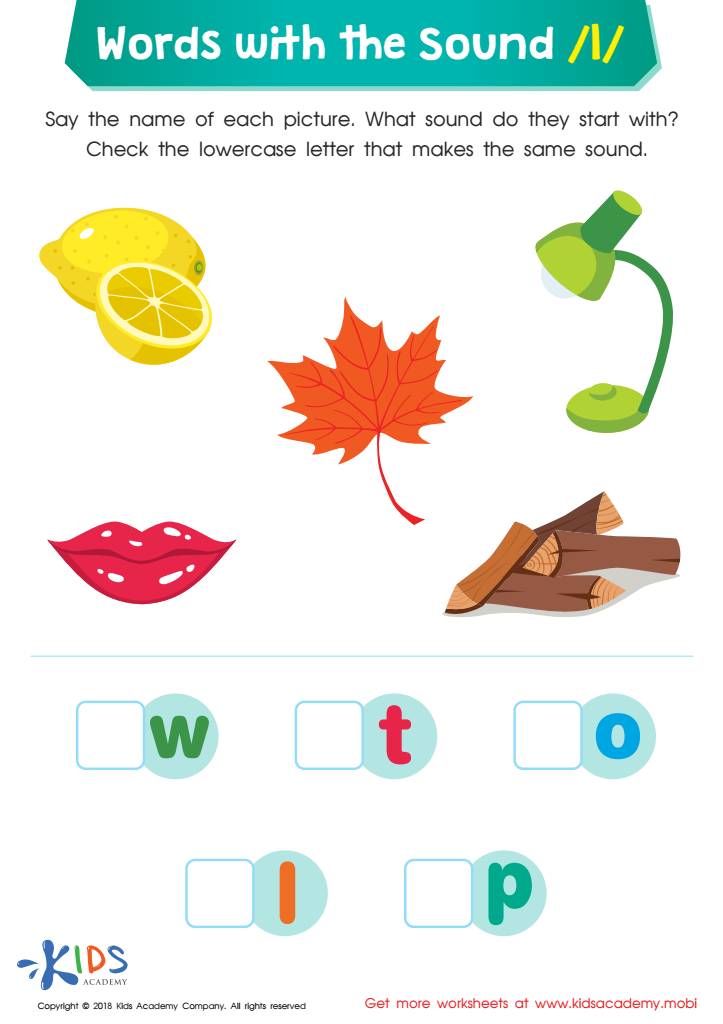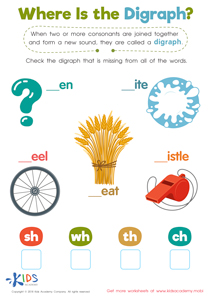Vocabulary expansion Beginning Consonants Worksheets for 6-Year-Olds
4 filtered results
-
From - To
Enhance your child's vocabulary with our engaging Beginning Consonants Worksheets designed specifically for 6-year-olds! These printable resources focus on recognizing and practicing the initial sounds of various words, helping young learners develop their phonetic skills. Each worksheet includes fun activities like matching, coloring, and filling in the blanks, making learning enjoyable and interactive. By mastering beginning consonants, children will also expand their overall vocabulary, laying a strong foundation for reading and writing. Explore our collection now and support your little one's language development in a playful and effective way! Perfect for at-home learning or supplemental classroom activities!


Words with sound h Reading Worksheet


Words with sound j Reading Worksheet


Words with Sound L Reading Worksheet


Words with sound f Reading Worksheet
Vocabulary expansion, particularly focusing on beginning consonants for 6-year-olds, is crucial for several reasons. At this age, children are rapidly developing their language and reading skills, and a strong foundation in vocabulary can pave the way for future academic success. Mastering beginning consonants helps children decode words more effectively. When children can identify the initial sounds in words, they become more proficient at reading, which enhances their comprehension and communication skills.
Moreover, vocabulary expansion plays a pivotal role in confidence-building. With a rich vocabulary, children are more likely to express themselves clearly and engage in conversations, fostering social skills. This early exposure sets the stage for lifelong learning, as children who have a robust vocabulary tend to perform better academically across subjects.
For teachers and parents, encouraging vocabulary development through playful activities such as rhymes, songs, and interactive games can make learning enjoyable. Engaging children in conversations that spotlight new words, especially those with distinct beginning consonants, can emphasize connections between sounds and letters. By prioritizing vocabulary growth at this formative age, adults can support children in becoming enthusiastic learners, enhancing their ability to think critically and communicate effectively in the future.
 Assign to My Students
Assign to My Students













